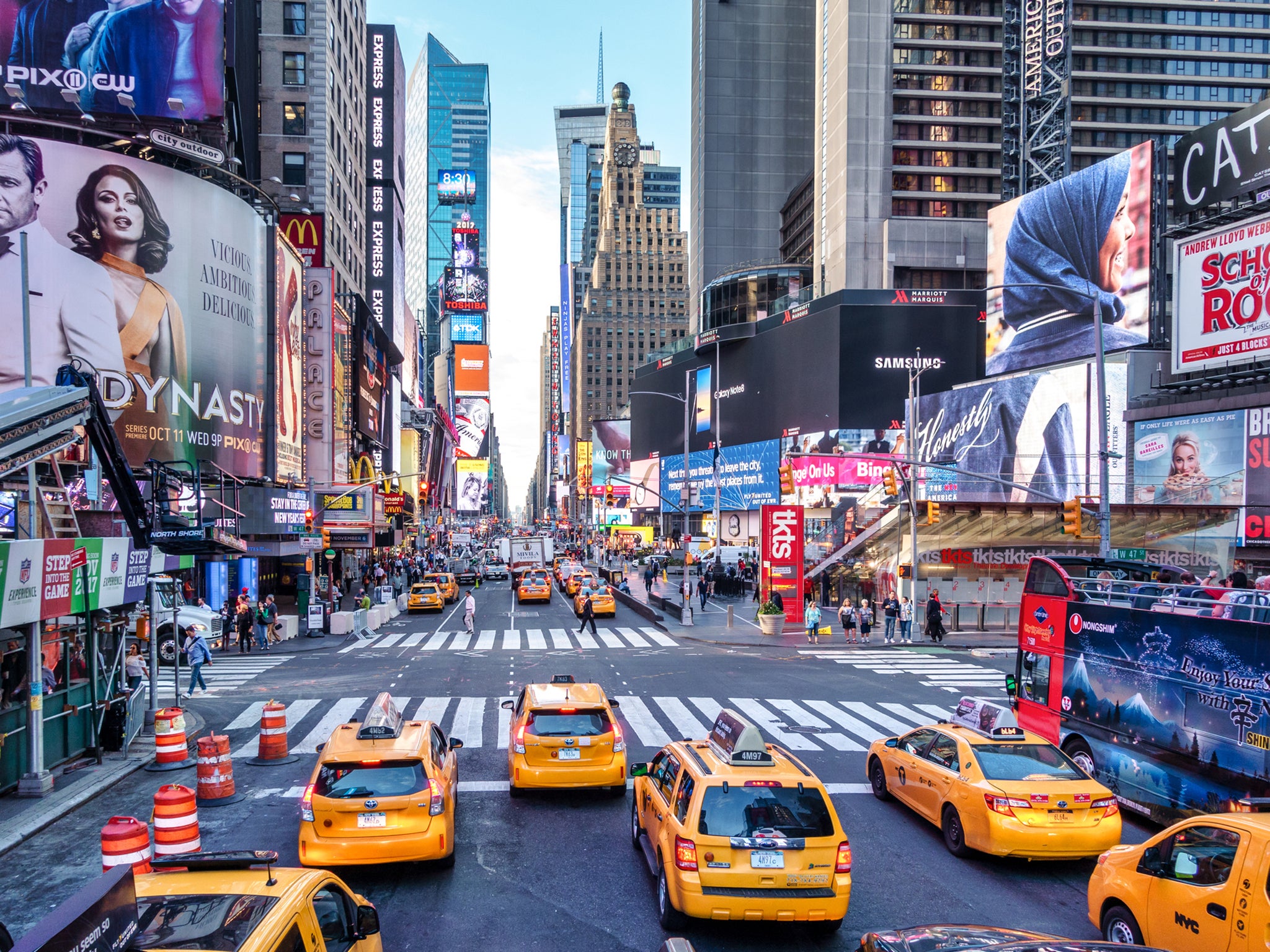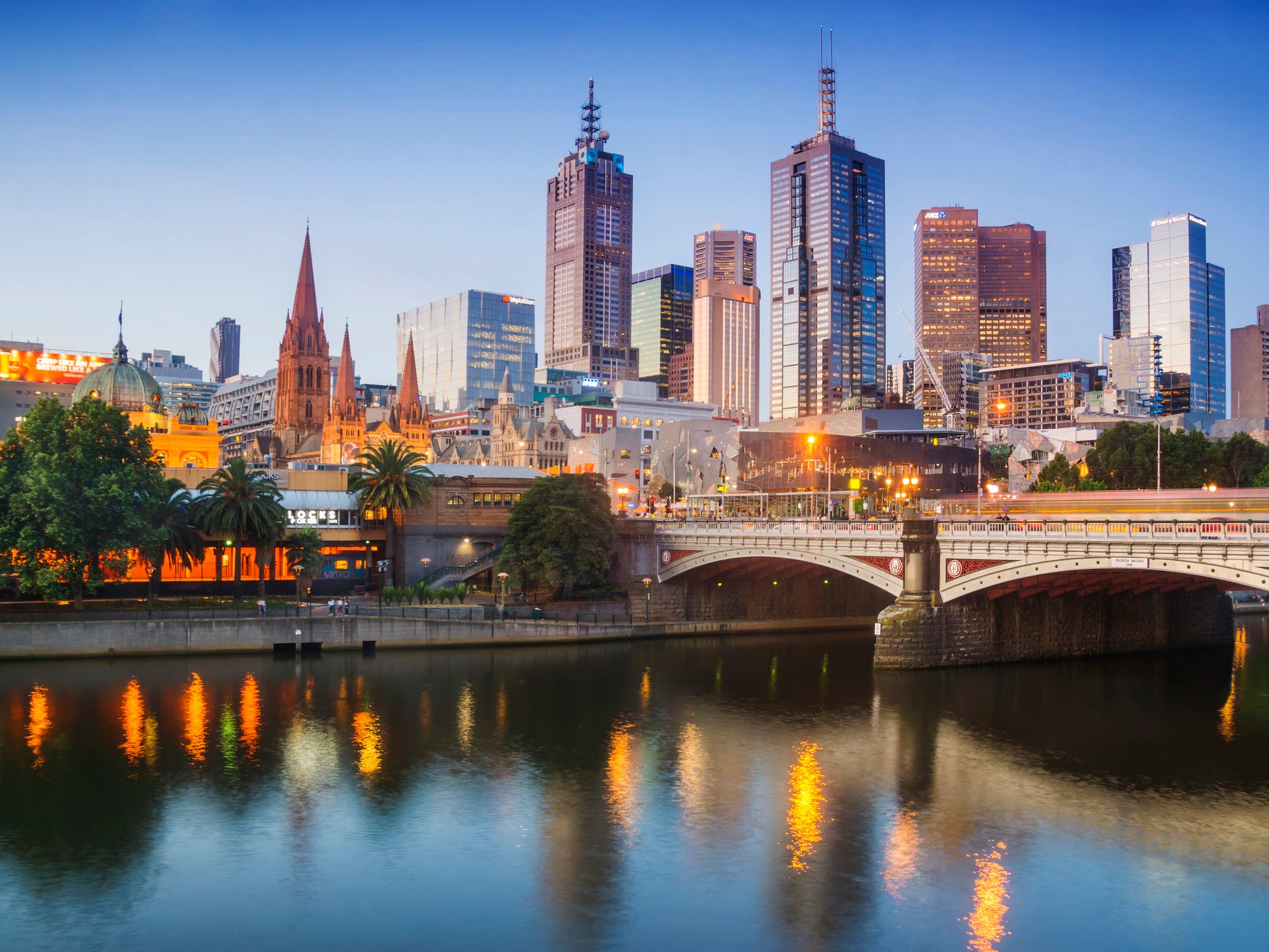How much should I tip in a New York restaurant?
Simon Calder answers your questions on tipping etiquette, keeping camara equipment safe and trips Down Under


Q I am going to New York for the first time in November. What sort of percentage would you suggest as tips in restaurants?
Peter E
A Except in extreme circumstances, the minimum you should leave is 18 per cent. This is, I agree, a ridiculous addition to your bill, especially as it is in addition to the 8.875 per cent sales tax on restaurant meals. The two combine to expensive effect. If you order a burger and a drink for two at a menu price of, say, $39 each, the total you would pay is over $100.
It’s annoying that sales tax is not included in restaurant checks (bills), as it is in the UK and many other countries, since it is clearly a mandatory extra. But many travellers are baffled about why there is another not-really-optional extra that adds almost one-fifth to the total.
The reason: employers in New York and many others are entitled to pay waiting staff at a special below-minimum-wage rate, on the assumption that diners will make up the difference. The New York State Department of Labour says: “The minimum wage for food service workers in New York City is $15 per hour. Their employers can satisfy the minimum wage by combining a cash wage of at least $10 with a tip allowance of no more than $5.” So there has long been unstated agreement that diners will tip handsomely.
Just five years ago, you could reasonably leave 15 per cent if the service was adequate. Now the lowest is 18 per cent, and a “tip 20” campaign has been in progress for some years to try to establish 20 per cent as the floor. At bars and coffee shops the percentage is inflated still further. When you pay, you will often be presented with pre-calculated options – usually 18, 20 and 25 per cent of the bill.
After queuing at Starbucks and other coffee retailers I decline to tip on the grounds that the staff are doing exactly their job. And while I tip at bars, I prefer to do so in cash, generally a dollar in cash for each beer. In Hibbing, Minnesota, this summer, a bizarrely generous happy-hour promotion resulted in a beer for my companion and me totalling $3.30. A couple of dollar bills on top represented a percentage of over 50 per cent. For once I was the biggest tipper in town – a rare event, I can tell you.

Q Recently returning from a trip to Botswana, I had a small backpack and a slim-wheeled cabin bag containing expensive camera gear and a laptop. The connecting flight from Heathrow to Edinburgh on British Airways was full because the next flight had been cancelled by BA some months earlier (I was supposed to be on that one). Airport staff were emphatic that everyone at the rear of the plane had to check in their wheeled bags.
When I explained that mine contained fragile camera equipment, I was simply told that if I didn’t check it in, it would likely be taken off me as I entered the plane. I frantically removed the most fragile equipment into my backpack, but as it transpired there was no need and there was plenty of space for my bag. Additionally, travelling in a party of four, one of whom had no hand luggage, made no difference to ground staff. In such situations am I compelled to check in my cabin baggage?
Sally A
A The mass cancellation by British Airways of thousands of flights over the summer particularly affected UK domestic links, putting pressure on departures that survived the cull. Add to that BA’s generous cabin baggage policy – a roll-along case plus a smaller backpack, weighing up to 23kg each – and you can see the potential for a squeeze in the overhead baggage bins. The airline makes clear: “On busy flights, you may be asked to check in your additional cabin bag, so make sure you have no valuables or essential medication packed in this bag.”
BA generally tackles potential problems in advance by inviting passengers to check in cabin baggage fee-free at the airport before going through security. (This will not have applied to you because you were in transit.) If insufficient people avail of the offer, I can understand ground staff at Heathrow choosing to require passengers to check larger pieces of baggage. It is concerning that a quiet word about the valuables was insufficient; I imagine the staff felt under pressure.
I have a cameraman friend who always flies with a camera worth thousands of pounds and a roll-along case containing accessories. I asked what he does in these circumstances. “I politely tell them the equipment contains batteries and can’t go in the hold,” he said. I dare say the same would be true of your camera gear.

Q I am booked to travel from Belfast City to Melbourne in Australia on Sunday 18 December via Heathrow (and Singapore). As you might imagine I was alarmed to hear that Heathrow airport may be bringing back a cap on passengers/flights. What are the chances my journey could be cancelled, and do I have any rights if it is?
Ann R
A Christmas 2022 is expected to be a “super peak” for UK travellers to Australia – making the trips they missed out on for almost two years while the government in Canberra kept the frontiers closed. I imagine you have paid handsomely for your ticket and, quite rightly, expect to be able to travel smoothly – changing planes at Heathrow and again at Singapore.
Heathrow airport applied a cap of 100,000 departing passengers per day during the summer to limit the stress on facilities and ground handlers. Hundreds of flights were cancelled – in addition to the thousands of pre-planned cancellations by the airport’s main customer, British Airways. The cap finally lifted yesterday, the last day of aviation’s summer season. But last Wednesday Heathrow said it was “working with airlines to agree a highly targeted mechanism that, if needed, would align supply and demand on a small number of peak days in the lead-up to Christmas”. The airport wants to “encourage demand into less busy periods, protecting the heavier peaks, and avoiding flight cancellations due to resource pressures”.
To translate, it seems that Heathrow is talking to carriers about retiming some departing flights from the morning rush to the afternoon, which tends to be quieter. For someone travelling only from London to Singapore, shifting a few hours later would make little difference. But understandably people like you with confirmed multi-leg bookings on different airlines are concerned that their whole itineraries could be jeopardised.
The overwhelming odds are that nothing will change for your flights a week before Christmas. The two potentially affected legs – Belfast to Heathrow and Heathrow to Singapore – will be packed with transfer passengers, and therefore among the least likely to be moved. Flights with higher numbers of “point-to-point” travellers on board, for example between London and big African cities, are more likely to be time-shifted because few passengers will have connections. But if one or both of your flights are affected, the airlines must work together to find a way to get you to your destination as close as possible to the original timings.
Email your question to s@hols.tv or tweet @simoncalder


Join our commenting forum
Join thought-provoking conversations, follow other Independent readers and see their replies
Comments